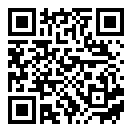Abstract:
Although, nowadays, comparative studies are common in many disciplines, there are few scientific and cognitive comparisons in theological and metaphysical tradition. No doubt, we can better understand traditional legacy and modern metaphysical and cognitive trends in the light of scientific comparisons. The present paper tries to compare modern theology with traditional one and understand their differences through discussing some of the most important features of these two theological paradigms. Such features as being metaphysical, dogmatic, non-historical, based on authoritarianism, scholastic, normative and the like have been used along with their opposite features to understand different aspects between modern theology and traditional one. This paper tries to provide a more precise picture of differences and developmental path of theology by giving some examples of Protestant Theology and its developmental path. A critical, hermeneutic, pluralistic, text-based, historical, and non-dogmatic as well as negation of authoritarianism dominates in modern theology. In fact, these are main features of modern theological paradigm.




